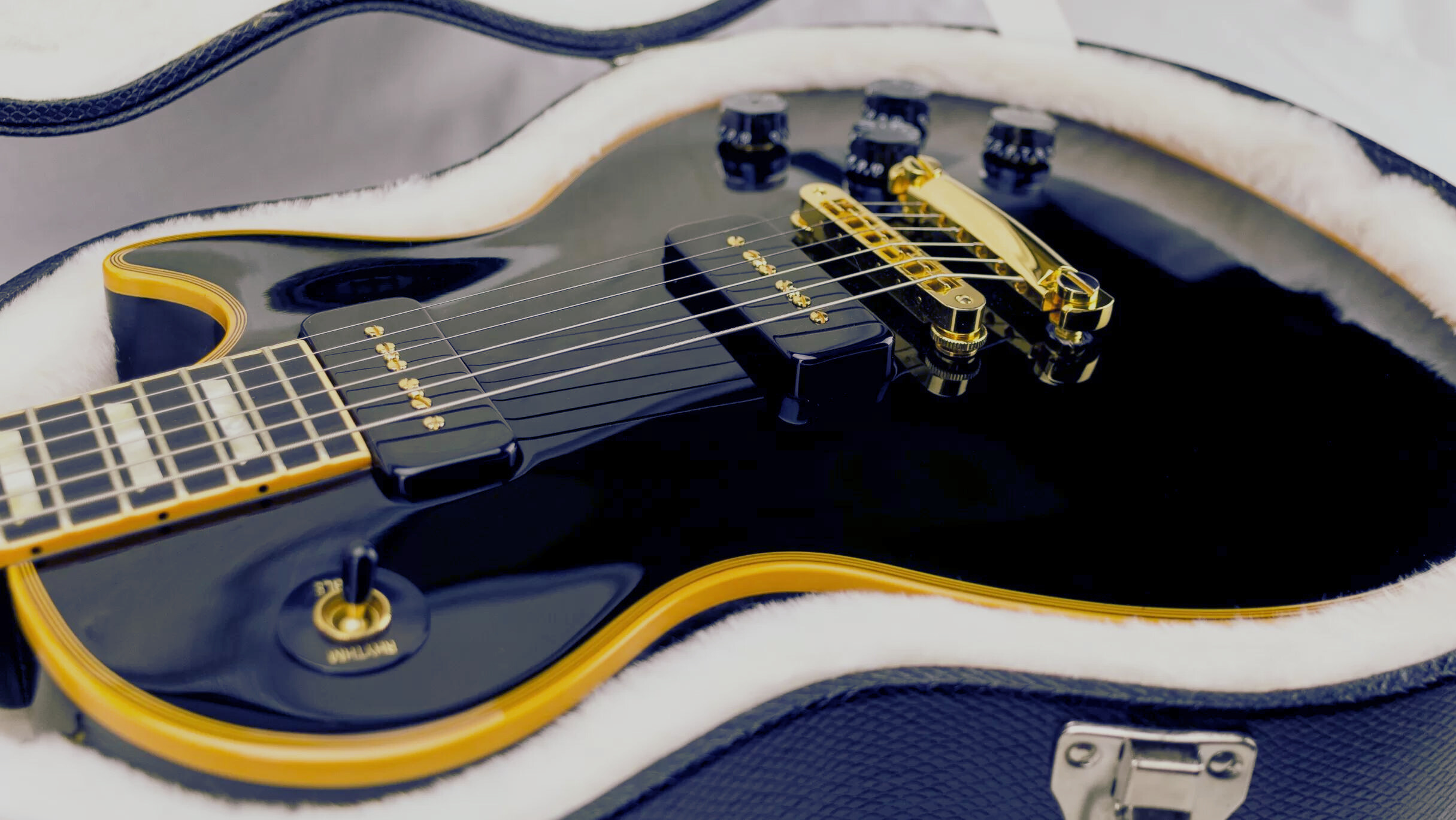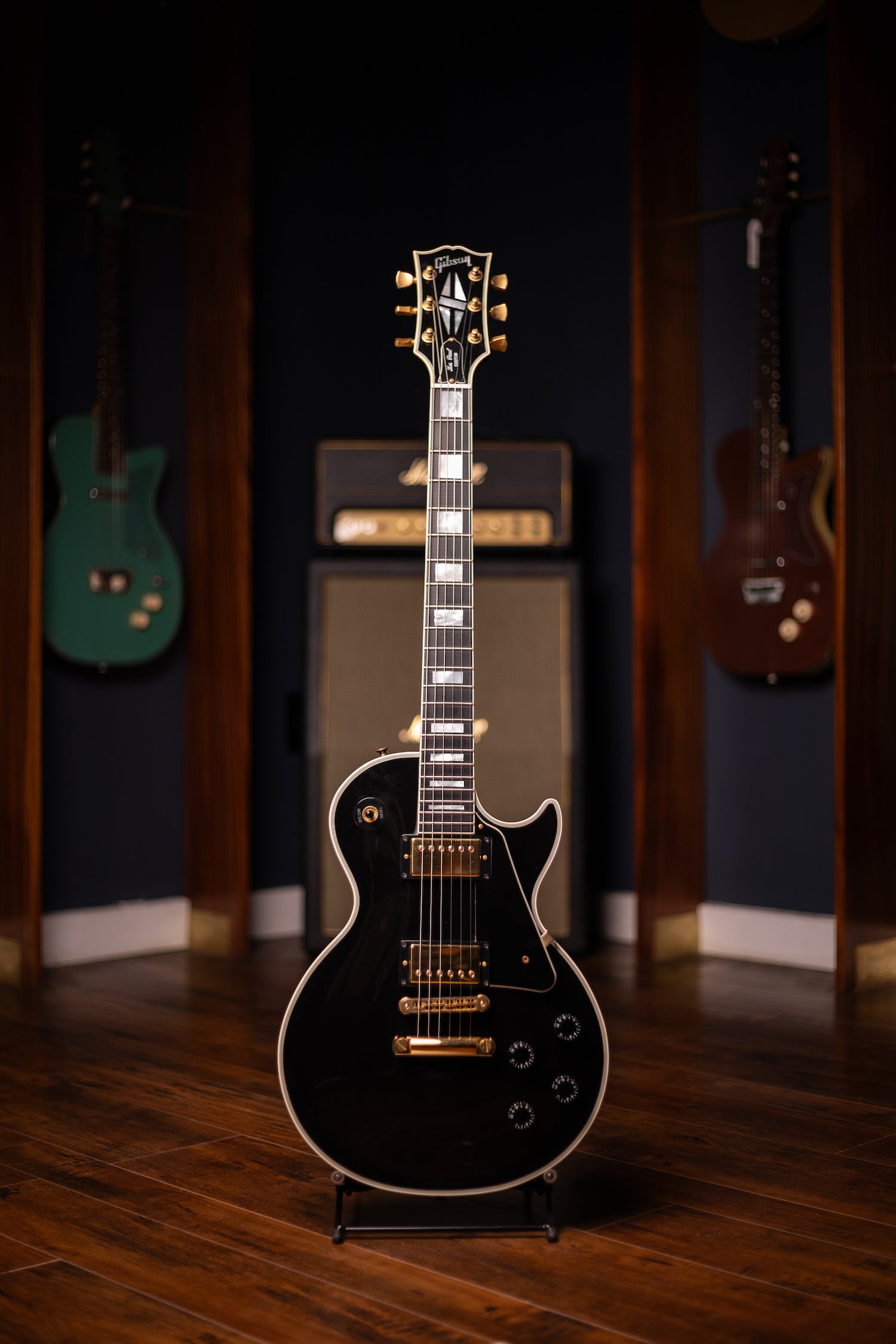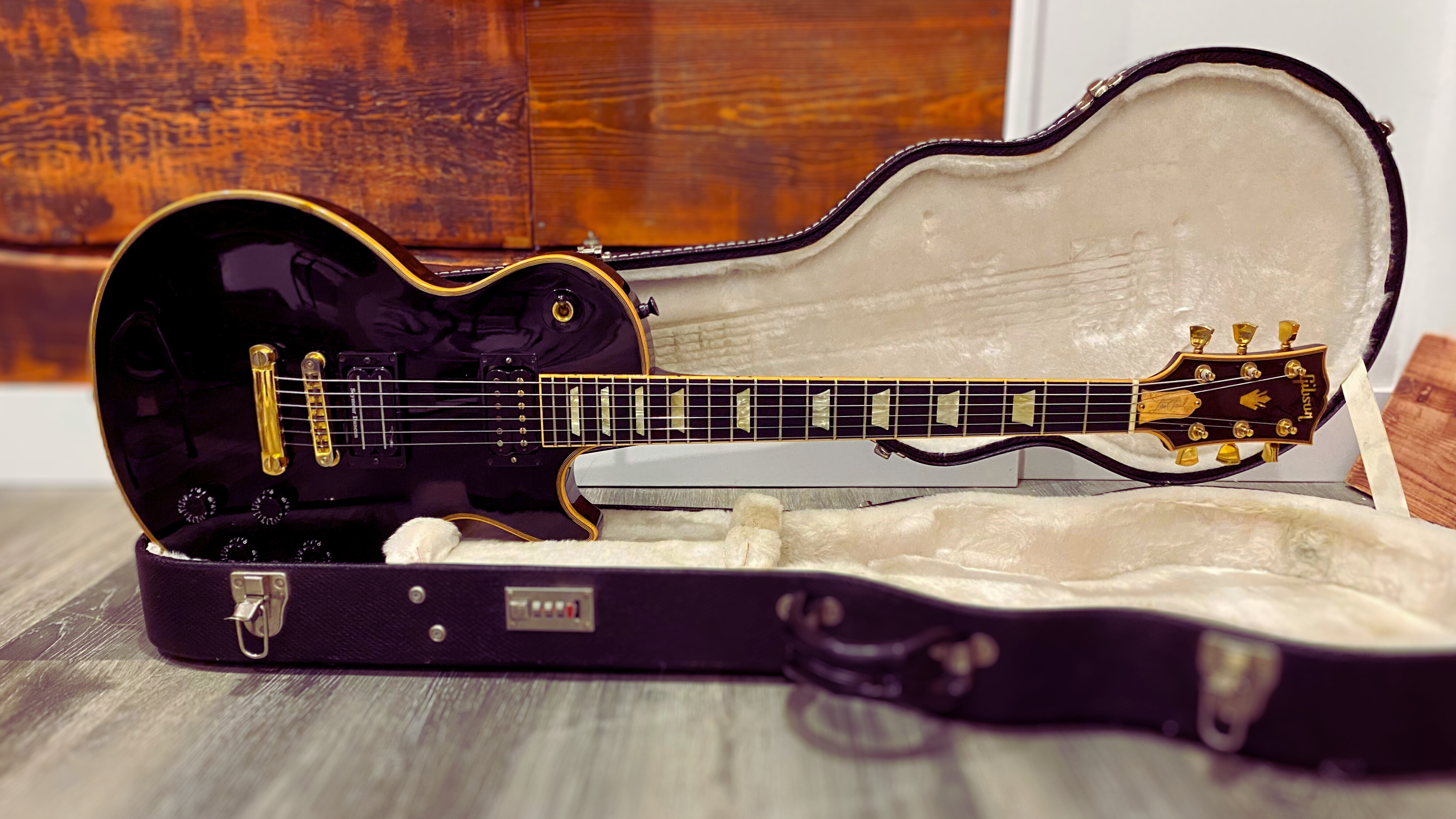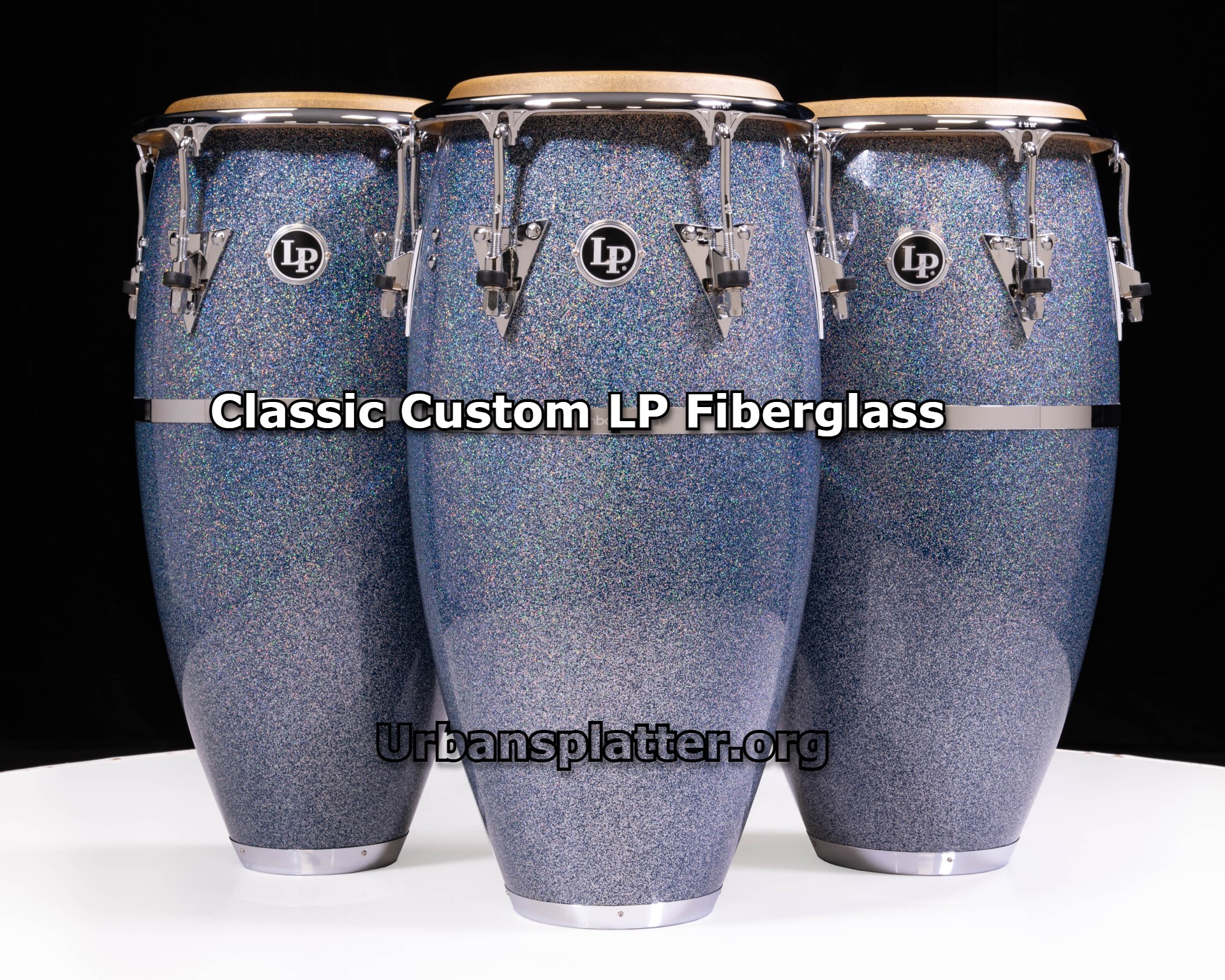When I first picked up a guitar, I was fascinated by the variety of materials and designs available. Years later, my passion for music led me to the intriguing world of Classic Custom LP Fiberglass guitars. These instruments not only sound incredible but also boast a unique look that turns heads. Have you ever found yourself wondering about the advantages and options of customizing your instrument with fiberglass? Join me as we explore this engaging topic.
Understanding Classic Custom LP Fiberglass Guitars
What is LP Fiberglass?
LP fiberglass refers to guitars that combine the classic Les Paul (LP) design with fiberglass as the primary material. This innovative approach results in a sturdy yet lightweight instrument, distinguishing it from traditional wood guitars. Think of it as blending the timeless shape of the LP with the modern benefits of fiberglass.
Key Features of Fiberglass Guitars
- Durability: Fiberglass is resistant to cracks and chips, ensuring your guitar withstands the test of time.
- Lightweight: Many players find fiberglass models easier to handle, particularly during long performances.
- Weather Resistance: Unlike wood, fiberglass does not swell or shrink due to humidity and temperature changes. This stability is a game-changer for musicians playing in varying conditions.
Overview of the LP Design
The Les Paul design has captured the hearts of guitarists since its inception in the 1950s. It features a single-cutaway body with a thick, carved top and double humbucker pickups. The combination of these elements produces a rich, warm tone. When fiberglass is used, you still get these iconic elements just with modern enhancements!
Popular LP Fiberglass Brands
Some well-known brands offering LP fiberglass guitars include:
- Custom Fiberglass: Known for custom designs and colors.
- Gibson: Offers select fiberglass models alongside traditional wood options.
- Riviera: Specializes in unique designs that put a modern spin on classic styles.
Distinguishing Characteristics from Wood Models
While classic LP guitars are built from various woods like mahogany and maple, fiberglass models stand out due to their unique tonal qualities and resilient structure. Many musicians argue that the sound produced by fiberglass guitars can sometimes rival traditional wood guitars, offering a crisper sound with excellent sustain.
Benefits of Fiberglass Over Other Materials
The benefits of fiberglass guitars extend beyond their durability and lightweight nature:
- They are often less expensive than high-end wooden guitars.
- Maintenance is more straightforward, as they require less care than fine wood.
- They resist wear and tear from everyday use, making them ideal for touring musicians.
A Brief History
It’s fascinating to note that LP guitars originated in the 1950s, while fiberglass was introduced in the acoustic world in the 1970s. These timelines represent the evolution of guitar crafting. The marriage of traditional design with futuristic materials shows an exciting shift in the music world.
“The versatility of fiberglass allows for unique designs that stand out on stage.” – Renowned Guitar Luthier
Conclusion
Classic Custom LP Fiberglass guitars combine innovation and tradition, catering to both musicians and collectors. Whether you are a seasoned professional or a novice, choosing an LP fiberglass guitar could enhance your musical arsenal. The powerful blend of aesthetics and functionality leaves little doubt that these instruments are worthy of attention.
| Year | Significance |
| 1950s | LP guitars originated, defining a classic design |
| 1970s | Fiberglass debuted in acoustic models, reshaping instrument construction |
Customization Options: Getting Personal with Your Guitar

Are you a musician who wants your guitar to reflect your style? Customized instruments let you adjust features to fit your taste and needs. This is a fantastic way to express your identity and elevate your music. Let’s explore the types of customizations available and how they can bring your vision to life.
Types of Customizations Available
- Unique colors and finishes Choose vibrant colors or sleek matte finishes that stand out on stage.
- Personalized hardware choices Select the materials and styles for parts like tuning machines and bridges.
- Pickups that suit your sound Choose pickups based on your preferred genre, whether it’s rock or jazz.
- Engravings and inlays Add a personal touch with custom designs or names on the fretboard.
Unique Colors and Finishes
One of the first things people notice about a guitar is its color. The right finish can make a statement. Some musicians love bold colors, while others prefer classic tones. Are you looking for something daring or traditional? Many guitar makers offer a range of options. You can opt for glossy, satin, or even textured finishes.
Personalized Hardware Choices
Beyond appearance, the hardware affects performance. Select materials that resonate with you. For instance, lightweight hardware may suit touring musicians. Heavier components can provide stability for studio work. What kind of player are you? Personalizing the hardware can mean the difference between a good performance and a great one.
Pickups That Suit Your Sound
This is where the heart of your sound lies. You have choices like single-coil, humbucker, or P90 pickups. Each creates a unique tone. If you’re into blues, you may prefer a warm humbucker. Rock enthusiasts might want something with a punchier sound. Understanding your style will help you choose the right pickups.
Engravings and Inlays
Adding engravings or unique inlays can not only beautify your guitar but also deepen your connection to it. Whether it’s a meaningful symbol or your name, those touches can make it truly yours. Such customization reflects your personality, making the instrument feel like an extension of yourself.
Common Custom Requests from Musicians
Many artists ask for specific changes during a build. Some popular requests include:
- Unique neck profiles for enhanced comfort.
- Custom fret sizes or materials.
- Adjustable bridges for better tuning stability.
These customizations are essential to support your playing style.
Consider Usability Alongside Aesthetics
It’s easy to get caught up in the visual aspects. Yet, usability is crucial. How does your guitar feel during performances? Many artists confront challenges balancing looks with functionality. Remember, you want your guitar to appeal, but it should also perform at its best.
Statistics that Matter
Here are some figures that illuminate common trends in guitar customization:
| Preference | Percentage (%) |
| Musicians prioritizing aesthetics in custom orders | 30% |
| LP guitar buyers opting for unique finishes | 65% |
“Customizing my instrument made it feel like a true extension of myself.” – Professional Guitarist
Customization is more than just looks; it’s about resonating with your identity. Adding personal touches to your guitar can enhance your performance style and comfort. What custom elements would make your guitar feel just right? The choices are endless.
The Fiberglass Advantage: Performance and Longevity

1. Sound Quality of Fiberglass Guitars
Many musicians believe that the most important factor in a guitar is its sound. When comparing fiberglass guitars to traditional wooden models, the sound quality can be surprisingly impressive. Fiberglass guitars can deliver a rich, vibrant tone.
This is due to the materials used in fiberglass construction. Unlike wood, fiberglass can be engineered to produce specific frequencies, resulting in a more consistent sound across various environments. This stability is a significant advantage, especially for those who perform frequently.
2. Durability in Various Conditions
Consider this: how often do you find yourself playing outdoors or in less-than-ideal weather? Each season brings unique challenges for musical instruments. Fiberglass guitars shine in these situations! They resist humidity, temperature changes, and even minor impacts much better than their wooden counterparts.
- Humidity? No problem.
- Temperature fluctuations? Bring it on.
- Accidental bumps? They shrug it off!
3. Breaking Down Wood vs. Fiberglass Sound Profiles
Let’s break it down. Wooden guitars often provide a warm sound full of bright overtones. However, they come with their set of issues: warping, cracking, and changing tone with age. In contrast, fiberglass guitars offer consistent tonality without these concerns. Many believe this gives them a more reliable performance.
So, why choose one over the other? Think about your needs. If you prioritize consistency and durability, fiberglass may be your best bet.
4. Care and Maintenance Tips for Fiberglass
Caring for a fiberglass guitar is more straightforward than you may think. Here are a few tips:
- Wipe it down: Keep the surface clean by wiping it after each use.
- Avoid harsh chemicals: Use only recommended cleaners.
- Store in a stable environment: While fiberglass resists damage, it still benefits from appropriate storage.
By following these simple guidelines, you can help your guitar last for years. It’s a small investment of time for a large payoff!
5. Real-Life Examples of Fiberglass Longevity
Many artists have shared their experiences with fiberglass guitars. Some report using their instruments for over a decade without any significant wear. This durability impresses most musicians who are used to frequent repairs on wooden guitars.
For example, a famous touring musician stated,
“Fiberglass has changed the game for me; I can perform anywhere without worrying about my instrument.”
6. User Testimonials About Their Experiences
What do musicians say about fiberglass guitars? Here’s what some have shared:
- One guitarist mentioned, “It sounds just as good in a humid climate as it does in a dry studio.”
- Another user said, “I used to worry about my guitar getting damaged while traveling; now I can focus on the music!”
These testimonials highlight the reliability and performance of fiberglass instruments in real-world situations. They inspire many musicians who are thinking about making the switch.
Climate Impact on Traditional Woods Compared to Fiberglass
Don’t forget that climate plays a significant role in wood instruments. Shifts in humidity and temperature can lead to cracks or warping in wooden guitars. Fiberglass handles these changes much better. It does not expand or contract the same way wood does.
This means you can take your fiberglass guitar wherever you like without stressing about the weather. How comforting is that?
7. Common Issues with Wear and Tear in Wooden Guitars
Lastly, let’s be honest. Wooden guitars can face a lot of wear and tear:
- Cracks from temperature changes.
- Warps from moisture.
- Color fading with time.
Given all this, the benefits of fiberglass become even clearer. Why deal with constant repairs and maintenance?
Choosing the Right Fiberglass Guitar for You

Finding the perfect fiberglass guitar can feel overwhelming. With so many options, how do you choose? Start by thinking about a few key factors that can guide you.
1. Defining Your Musical Style
Your musical style is perhaps the most important factor. Are you into rock, jazz, or classical? Each genre has specific sounds and tones that a guitar should ideally produce. For example, a jazz player might prefer a model that allows for smooth riffs, while a rock guitarist might need something that can handle heavy distortion.
Ask yourself, what makes you feel inspired when you play? This will give you a clue about the type of sound you seek.
2. Evaluating Budget Constraints
Next comes the budget. It can be tempting to aim for the highest-end model, but it’s smart to set a realistic budget first. The average cost for a quality LP fiberglass guitar is about $1200. However, you might find options that suit your needs at lower price points.
- Consider how often you will play.
- Factor in maintenance costs.
- Look for sales or discounts too!
3. Visiting Local Shops Versus Online Purchasing
Today, you can purchase guitars both online and at local shops. Each choice has its pros and cons. Local shops provide you with the ability to touch and feel the guitar, to see if it resonates with you. Online stores often feature better prices and a wider selection.
Which do you think fits better with your buying style? Maybe visiting a local shop first will help you decide what to look for online later.
4. Considerations for Sound Preference
Sound preference is pivotal in choosing a guitar. The quality of sound can vary depending on materials and construction. Fiberglass guitars generally provide a unique resonance that is distinct from wood. They can be clear, punchy, and sometimes even more durable.
It’s vital to consider how the guitar sounds with your preferred music style. If you are a singer, does the guitar complement your voice? Before buying, listen to how it pairs with other instruments.
5. Importance of Trying Before Buying
Have you ever heard the saying, try before you buy? It rings true with guitars. A staggering 40% of buyers reported they wish they had taken the time to try more guitars before their purchase. Why not avoid that regret?
Playing the guitar can drastically influence your choice. Whether it feels comfortable in your hands is more important than any specifications. So, make sure to spend some time with it.
6. Comparing Against Other Materials
While fiberglass is a great choice, take time to compare it against other materials. Wood has a traditional appeal and can produce warm tones. In contrast, fiberglass is often more resistant to environmental changes, meaning it can be a reliable option year-round.
Consider factors like weight, playability, and durability. Which material feels best suited to you? Remember, there’s no right or wrong, just what fits your style.
“Choosing a guitar is a personal experience; take your time!” – Experienced Music Store Owner
Finding the right fit for your musical journey takes patience and exploration. So, take that journey seriously, whether it’s through trying different styles, staying mindful of your budget, or simply visiting a local shop to test the sounds.
Conclusion

As we wrap up our discussion on fiberglass guitars, it’s clear that this material offers *numerous advantages* that can significantly enhance your playing experience. You might be wondering, “What makes fiberglass so special?” Well, let’s recap some crucial points.
Recap of the Fiberglass Advantages
Fiberglass guitars are known for their durability and stability. Unlike traditional wood, fiberglass is resistant to changes in humidity and temperature. This means your instrument can withstand whatever environment you find yourself in. You don’t want to miss a gig because your guitar can’t handle the heat, do you?
These guitars also provide a unique sound quality. Many musicians find that fiberglass guitars blend warmth with a bright tone, offering clarity and resonance. It’s like having the best of both worlds. Plus, minimal maintenance means you can focus on creating rather than worrying about your gear.
The Growing Popularity of Custom LP Guitars
We’re also witnessing a surge in the popularity of custom Les Paul (LP) guitars made from fiberglass. Musicians today prefer customizing their instruments to fit their unique styles. They want guitars that not only play well but also reflect their personality. It’s no surprise that custom boards, electrics, and shapes have become widespread in the market.
Just think about it. In a world full of standard models, standing out is key. Custom LP guitars give you that edge while ensuring quality sound. Would you rather sound like everyone else or have your signature tone?
Personal Anecdote About a Standout Performance
Let me share a personal story. I once performed at a local music festival with a fiberglass LP. The crowd was electric, and the guitar responded beautifully. The sound carried through the air, captivating everyone around. After the set, several people approached me to ask about my guitar. They were blown away by not only the visually striking design but also the rich sound it produced.
That experience solidified my belief in fiberglass guitars. They aren’t just instruments; they are an extension of your musical identity. This brings me to my next point.
Encouragement to Explore Options
If you’re considering a new guitar, take the time to explore fiberglass options. Visit local shops or check online platforms. It’s essential to pick instruments that resonate with you. Remember, a guitar isn’t just about looks or brand. It must feel right in your hands and inspire you to play your best.
Final Thoughts on Choosing the Right Instrument
Choosing the right instrument is a personal journey. It shapes your music, influences your sound, and can even affect your performance. Keep in mind the aspects that matter most to you. Whether it’s sound quality, aesthetics, or durability, fiberglass guitars offer a unique blend of all these features.
Call-to-Action for Readers Considering Fiberglass
If you’re ready to take the leap and explore fiberglass guitars, don’t hesitate. You could find an instrument that sparks your creativity and enthusiasm for music. Check out custom options that suit your style. Remember, your choice shapes your musical experiences!
In wrapping up, it’s clear fiberglass customizations can enhance your musical journey like no other material. Don’t just follow trends; be part of them. Choose wisely, and let your music truly shine.
Frequently Asked Questions about Classic Custom LP Fiberglass
What Makes Fiberglass Guitars Unique?
Fiberglass guitars are a fascinating blend of traditional craftsmanship and modern materials. One of the key aspects that set them apart is their construction. Unlike wooden guitars, fiberglass instruments are made from a composite material that offers exceptional durability. Think of it this way: if a wooden guitar is like a fine wine, carefully aged, a fiberglass guitar could be likened to a sturdy, weather-resistant structure. Both have their merits, but one is built to endure the elements better than the other.
Another unique aspect is the sound quality. Many people mistakenly believe that fiberglass guitars lack warmth, but they can produce a wide range of tones. The resonance of fiberglass can create a bright, crisp sound. This makes them versatile enough for different musical styles.
How Can I Customize My Fiberglass Guitar?
You might wonder, how personal can I get with my instrument? The beauty of custom fiberglass guitars is that the sky’s the limit.
- Color options: Choose any color you want, from classic black to vibrant reds or blues.
- Finishing touches: You can opt for matte or glossy finishes to fit your style.
- Pickups: Select pickups that align with your sound preferences – whether that be humbucker, single-coil, or custom configurations.
- Neck shaping: You can have the neck designed for a comfortable grip, suited to your playing style.
When customizing, consider what feels best for you. After all, this guitar will reflect your personality.
What Are the Maintenance Requirements?
Maintenance is crucial for any instrument, and fiberglass guitars are no exception. You may ask, “What does that look like?” First, they are generally low-maintenance compared to wooden instruments.
- Keep it clean: Regularly dust off your guitar. Use a soft, lint-free cloth.
- Avoid extreme temperatures: Like any material, fiberglass can expand or contract in extreme heat or cold.
- Check hardware: Periodically inspect the frets, tuners, and other components for wear.
- Store properly: Use a guitar case that provides sufficient padding.
With these simple steps, you can extend the life of your fiberglass guitar considerably.
Are Fiberglass Guitars Suitable for Different Genres?
Wondering about the versatility? Yes, fiberglass guitars shine across various musical genres! Many musicians appreciate their adaptability.
- Rock: The punchy sound is excellent for rock music.
- Jazz: Their clarity works well for jazz, giving you that clean tone.
- Folk: They can easily handle acoustic styles, providing warmth and character.
- Metal: The bright tones make them a great choice for heavy music as well.
Whether you strum soft folk tunes or shred heavy metal riffs, fiberglass guitars are up for the task.
How Long Does a Custom Order Take?
If you’re ready to get your personalized fiberglass guitar, you might be curious about the wait time. Custom orders generally take anywhere from 4 to 8 weeks. This can depend on the specifics of your customization. The more intricate the details, the longer the craftsperson may need.
What’s the Price Range for These Guitars?
Thinking about how much you’ll need to spend? Prices can vary widely. Entry-level fiberglass guitars may start around $500. Higher-end, customized models can go upwards of $2,000 or more. It depends on the materials and customization choices you make. Quality often dictates price, so be prepared to invest in what suits your needs.
Addressing these common questions can help you make an informed decision on whether a classic custom LP fiberglass guitar is right for you. It’s an exciting choice, and understanding the aspects of these instruments will support your overall satisfaction with the purchase.















